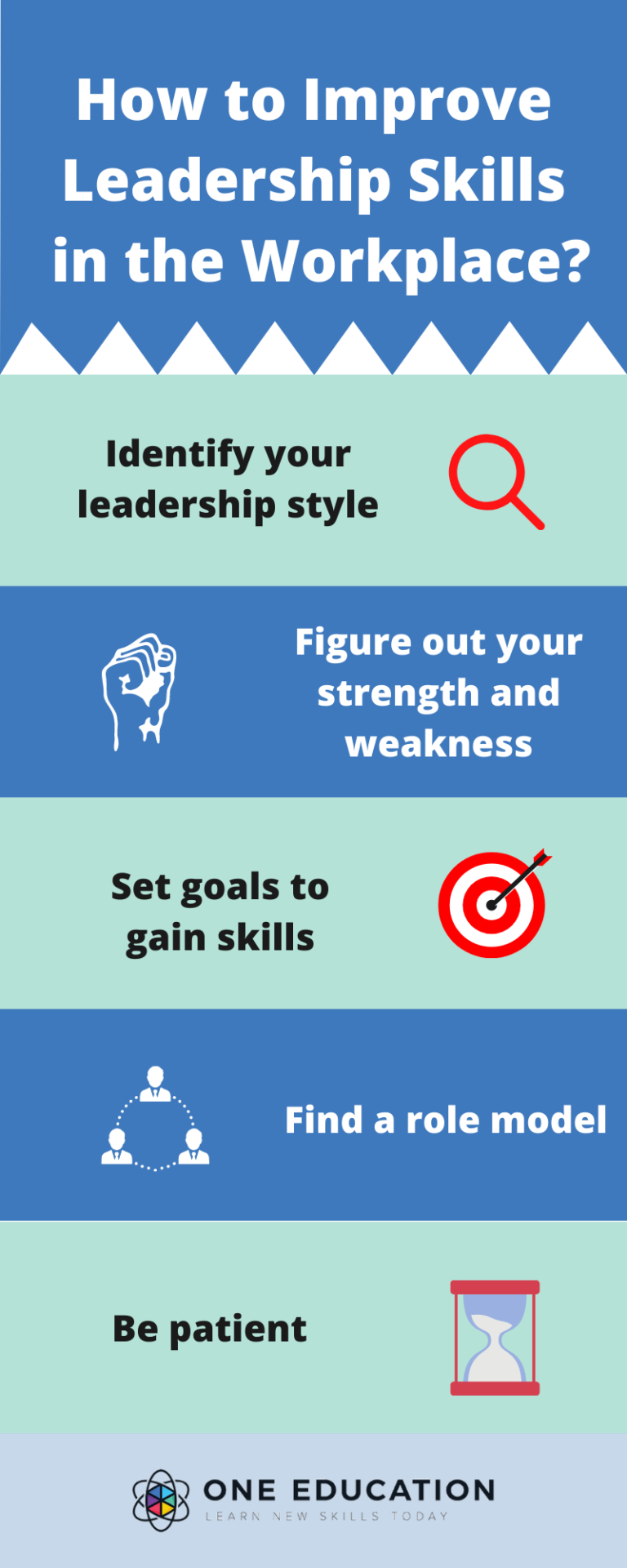Leadership is a dynamic process of influencing human behaviour. In other words, it is the mutual relationship between a leader and a follower. Everyone wants to adopt leadership skills and accelerate their career. From the blog, you will get to know everything about leadership, including – what is leadership and how leadership skills can influence the values of an organisation.
Table of Contents
Who is a Leader?
The first step to know how leadership skills can influence the values of an organisation is understanding who is a leader.

A leader is a person who influences people to attain organisational objectives willingly. The more capable the leader, the greater is his mastery over the art of influencing others. Generally, a cricket or football captain in the playground, a minister in a state, a manager in his organisation are leaders. It is easy to be a manager but hard to be a leader. The success of a leader lies in influencing the people such that they add to the value of the organisation while staying self-motivated.
Good leaders are not born with leadership skills. But if you have the desire and work on the related skills, you can also become a great leader.
What are the Different Kinds of Organisational Leaderships?
Basically, there are many types of leadership styles that a leader can draw upon to get the best outcome from his team. What are those leadership types that you can follow? Also, how do you know when to use a different style, and what are the types of leadership you should avoid?
![]()
Few types of leadership styles are the following-
1. Transactional Leadership
Transactional leadership revolves around rewards and punishment. The leader asks his subordinates to achieve a certain target. If they can achieve the target, they will be rewarded. Otherwise, they have to accept a penalty.
Depending on the situation, such a method needs to be chosen. It is certainly not ideal for every situation, but for some, this can be a very effective leadership style.
2. Situational Leadership
This is an adaptive leadership style, where strategy encourages the leader to be team member-centric. Therefore, the situational leadership style is flexible, and the leader chooses the style that best fits their goals and circumstances.
3. Democratic Leadership
When the leader makes decisions based on the input of every member of his team, we identify it as democratic leadership. This leadership is one of the most effective leadership styles. Because it lets employees practice the authoritative decision-making skills that they may need to apply later in more advanced professional roles.

4. Autocratic Leadership
On the contrary to the democratic style, the leader makes decisions without taking any opinion from any of his employees. Here, the employees are neither considered nor consulted before any decision-making. In the recent era, most organisations today can’t sustain such a hegemonic culture.
5. Laissez-faire Leadership
The French term “laissez-faire” means “let them do”. In this type, the leader who embraces it typically gives almost total authority to his employees. So, it can be called hands-off leadership. Generally, startups are laissez-faire, where the founder doesn’t have a strict office policy. Instead, they may put full trust in their workers while focusing on the overall operations of the organisation.
6. Strategic Leadership
A strategic leader often lies at the intersection of an organisation’s main operations and its growth opportunities. Generally, they propel through the streams of executive challenges. And at the same time, they also don’t lose their focus on overall team satisfaction.
Finally, the leaders can use their leadership style depending on their needs and the challenges in the workplace.
How Leadership Skills can Influence the Value of an Organisation?
Leadership skills can influence the values of an organisation to a great extent. Great leadership includes establishing a vision among the employees, motivating the employees and helping them achieve organisational goals by accelerating employees efficiency and boosting profitability.
An ideal leader sets a good example for others by demonstrating a good work ethic, optimism, increased productivity etc. Also, employees are more inclined to follow and imitate a charismatic leader. Thus, effective leadership skills can greatly influence the value of an organisation.
Leadership skills influence the value by the following:
Establishing Great Communication with the Team
A good leader is able to communicate with each and every member of his team effectively. Moreover, as a good leader, you must understand the personality and characteristics of the individuals and find the best way to communicate with them. You have to listen to them actively and be transparent in your communication. As a result, synergy is created, which can increase the value of the company.
Dealing with Subordinates and Increasing Employee Engagement
Every single member of the company is different. A leader with good leadership skills knows his subordinate’s needs and wants and how to make them effective. Also, a leader makes them understand the expectation of the company towards the employees. So, good leadership influence the company by increasing the work drive of employees and guide them towards success.

Mediating Conflicts
Whenever there is a trace of negativity between two employees, the conscious leader rushes in and tries his best to solve the problem. The leader talks to each of them and tries to solve the clash. Similarly, if there is a work conflict between two groups, you have to talk to each group.
After that, try to find out a way to mitigate their conflicting issues for maintaining a sound work environment. Other than that, without using great leadership skills, long-term harmony in the workplace cannot be sustained. So, leadership skills influence the value of a company by mediating organisational conflicts.

Resolving Issues by Weighing Various Alternatives
How can a great leader sit idle when the company is facing problems? As a good leader, you’ll need to put in a good deal of effort to tackle the problems head-on. For example, you have to find multiple alternatives, select the best one and implement it for the betterment of the company.

Allocating Resources Properly
A company has many assets like – human resources, financial resources, physical resources etc. Therefore, you have to find the best way to utilise all the resources by using leadership skills and find the optimal usage to increase the productivity and profitability of your company.

Taking Initiatives and Calculated Risks
This marks the difference between a leader and a follower. A leader has a natural instinct regarding which initiatives will be beneficial for his company. Also, they are the ones who take risks and hit the jackpot.

Finally, good leadership skills increase employee engagement, support a positive environment and help remove obstacles for the team. Also, good leadership is contagious, inspiring others to apply positive traits in their own work. Moreover, anyone can become a great leader by learning and exercising the above skills.
Effective leadership is a must for any profitable organisation. Because it builds strong teams within a business and ensures the project’s success. Thus, leadership influence the value of an organisation.
Some Important Leadership Skills
Leaders shape nations, communities, and organisations. So, companies need good leaders to guide and make the essential large-scale decisions that increase the company’s value.

Usually, you can quickly identify a bad leader, but do you know how to identify a good one? Also, what would most people say makes a good leader? Here is a list of some other leadership skills to identify a good leader –
- Active listening
- The ability to pass clear messages and make complex ideas understandable for others
- Creativity
- Empathy
- The ability to inspire and convince others
- Flexibility
- The ability to turn information into action
- The skill to detect other employees’ strengths and weaknesses
- The ability to build trust
- Positivity and reliability
- Business storytelling and persuasion skills
- The ability to align the subordinates with the organisational values and goals
- The skill to assist others to find meaning at work
- Strong charisma
- Time management
You can take a Diploma in Leadership to gain leadership skills and learn how to become an effective leader. It will help you to grow your career and climb to the top of the corporate ladder.
What are Leadership Qualities?
Your primary motive as a leader should be to influence the behaviour of your subordinates to achieve desired goals and objectives of your organisation. Thus, in this way, you can increase the value of your company effectively and efficiently.

For the purpose of being a good leader, these are some of the most desirable qualities to exercise-
1. Vision
2. Integrity
3. Courage
4. Patient
5. Tenacity
6. Authenticity and self-awareness
7. Strategic planning
8. Interpersonal communication
9. Responsibility and dependability
10. Focus
These are some leadership qualities that every company want to see in their employees.
How to Improve Leadership Skills in the Workplace?

How to learn leadership skills? Or how to apply leadership skills in the workplace? Learning leadership skills is not as straightforward as learning technical skills like programming. Also, it takes time and practice to develop skills that make you a good leader.
Here are a few tips for improving your leadership skills in the below:
1. Identify Your Leadership Style
There are different leadership styles suitable for the different conditions of your company. However, you need to select the appropriate style for every situation.

So, try to figure out the most effective leadership style; it will be helpful to define how you want to lead your company.
2. Figure Out the Strength and Areas for Improvement
After that, take some time to identify which skills you have already achieved and which you need to focus on.

You can ask for professional feedback from your trusted co-workers or mentors to help you find out your strengths and weaknesses. Also, identify your strength and focus on them for betterment.
3. Set Goals to Gain Skills
You can develop personal goals to improve your leadership skills by practising the skills of great leaders. As a result, it will provide you with a focused framework. Also, you can try to use SMART goals, which will allow you to improve on specific qualities.
SMART stands for:
S= Specific
M= Measurable
A= Achievable
R= Realistic
T= Timely

Normal Goal vs Smart Goal
Normal Goal: You want to work out.
SMART Goal: Smart goals carry details, such as –
Firstly, you are planning to run 3 days a week and practice yoga 4 days a week to your weekly schedule starting this week. Secondly, you will run for 45 minutes and do yoga for 1 hour each session. Thirdly, you will run on Sunday, Tuesday and Thursday. Meanwhile, do yoga for the rest of the 4 days of the week. Finally, you will keep tracking the time of workout, note it in a diary and look it back in one month or every 2 weeks to see if this was realistic and achievable with your recent schedule.
On a whole, setting a SMART goal allows you a chance to see if the goal is attainable. In case, it shows that you won’t be able to achieve it, you can set a new SMART goal that is more realistic and doable in your current situation.
4. Find a Role Model
You can select a person whom you like as a great leader. However, that mentor could be anybody like your teacher, your coach, or even your previous boss. Firstly, identify why do you feel so good about them. Secondly, you might practice his actions and style.
Thirdly, you can ask your role model to be your current mentor, if possible! Don’t miss the opportunity to learn from them. Also, focus on the qualities that make them productive and efficient.
5. Be Patient
Generally, becoming a great leader takes time and patience. It can take a few months, or years, or even decades. Many managers dedicate their entire lives to becoming great leaders. Therefore, be patient, be positive and learn from your mistakes. Even the greatest leaders make mistakes. So, learn from your mistakes and improve yourself over time.
Related:
1. How to Develop Leadership Skills in the Workplace?
2. What is Distributed Leadership? Everything You Need to Know

To sum up, focusing on and improving the skills that make you a great leader can help you to smoothen your career path. No matter where you work or your job position, invest time to practice great leadership that can lead to your career development in the long run.
Traits To Accelerate Your Career
It is not very easy to accelerate your career and reach the top organisational positions. You need to take responsibility for resources as well as the other employees of your company.

Remember that-
1. Good leaders are future-oriented
3. Great leaders keep a positive attitude
3. The best leaders take responsibility
Final Thoughts
Leaders in all phases of life should have some basic skills and qualities. Good leaders are made, not born. Therefore, learn how leadership skills can influence the values of an organisation so that you can increase your company’s value as well as reach the top organisational position. To learn more about leadership skills, click!
Recent posts
- The Impact Of Remote Work On Women In The Marketing Industry
- 5 Reasons Why You Should Pursue a Cybersecurity Career
- Differentiating Web Design and Web Development
- Top 10 Social Media Management Tools for Businesses in 2024
- Why is Child Development so Important in Early Years
- Line Management: How to be a Good Line Manager?
- How Long Should a Health Sector Career Take?
- The Importance of BSL in Everyday Life
- Why Corporate eLearning is Essential for Organisational Training
- Take your Business Expertise to the next level: Get your MBA







 August 15, 2021
August 15, 2021








